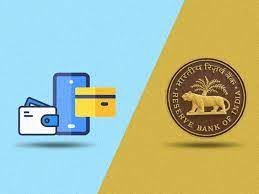Tata Pay Secures RBI Payment Aggregator License for E-commerce Transactions
Tata Pay, a subsidiary of Tata Sons, has recently attained the esteemed RBI Payment Aggregator License. This license marks a significant milestone for the company, allowing it to facilitate seamless e-commerce transactions. This achievement adds a new dimension to Tata’s ventures and underscores its commitment to fostering digital payment solutions in the rapidly evolving Indian market.
Why this News is Important
E-commerce Growth and Digital Payments
The e-commerce industry in India has been witnessing exponential growth, further accelerated by the ongoing digital revolution. The attainment of the RBI Payment Aggregator License by Tata Pay aligns with the burgeoning demand for secure and efficient digital payment gateways within the e-commerce landscape. This development is pivotal as it consolidates Tata’s position in the domain while contributing significantly to the digitization drive in the country.
Market Expansion and Competitive Edge
Securing the RBI license positions Tata Pay strategically in the competitive e-commerce ecosystem. This move enhances the company’s market presence, allowing it to offer a comprehensive suite of payment solutions to businesses operating in the digital space. It also strengthens Tata’s competitive edge by providing a robust and reliable platform for merchants and consumers alike.
Historical Context
Tata Group’s legacy in pioneering technological advancements and its dedication to innovation date back decades. With its diverse portfolio spanning various sectors, Tata has played a pivotal role in shaping India’s economic landscape. The acquisition of the RBI Payment Aggregator License is a testament to Tata’s enduring commitment to staying at the forefront of technological innovation and addressing the evolving needs of the market.
Key Takeaways from “Tata Pay Secures RBI Payment Aggregator License for E-commerce Transactions”
| Serial Number | Key Takeaway |
|---|---|
| 1. | Tata Pay, a subsidiary of Tata Sons, obtained the RBI Payment Aggregator License, enabling it to facilitate e-commerce transactions. |
| 2. | This achievement underscores Tata’s commitment to fostering digital payment solutions and supporting India’s digital revolution. |
| 3. | The attainment of the RBI license enhances Tata Pay’s competitive edge in the e-commerce market, offering robust payment solutions to businesses. |
| 4. | Tata Group’s historical legacy of innovation and technological advancements reinforces its position as a frontrunner in the digital payment landscape. |
| 5. | The growth of the e-commerce industry in India necessitates secure and efficient digital payment gateways, a gap that Tata Pay aims to fill with this license. |
Important FAQs for Students from this News
What is the RBI Payment Aggregator License obtained by Tata Pay?
The RBI Payment Aggregator License allows Tata Pay to act as an intermediary for processing payments between merchants and banks for e-commerce transactions. It ensures compliance with the Reserve Bank of India’s regulations.
How does this development impact the e-commerce landscape in India?
This development signifies a boost in the availability of secure digital payment solutions, fostering trust among consumers and facilitating smoother transactions in the rapidly growing e-commerce market.
What advantages does securing the RBI license offer to Tata Pay?
The license enhances Tata Pay’s credibility and competitiveness in the industry, providing an edge by offering comprehensive payment solutions to businesses and customers.
What role does this play in Tata Group’s technological advancements?
Obtaining the RBI license aligns with Tata’s commitment to technological innovation and reinforces its position as a leader in driving digital transformations across sectors.
How does this news impact aspirants preparing for government exams?
Understanding the significance of digital payments, technological advancements, and their implications for the economy becomes crucial for aspirants in various fields like banking, civil services, and commerce-related positions.

